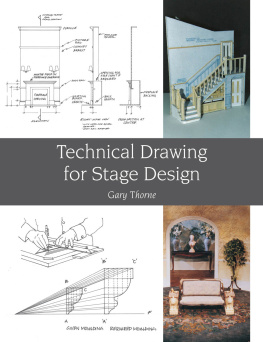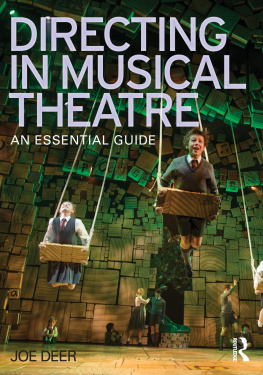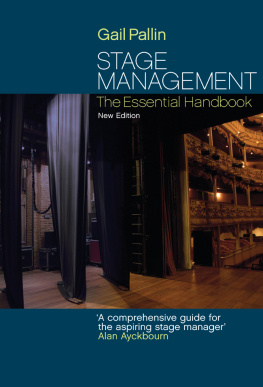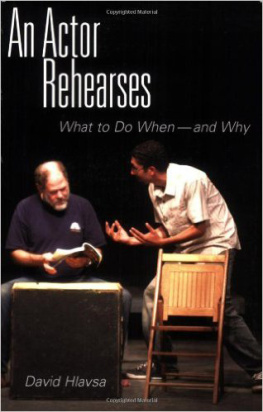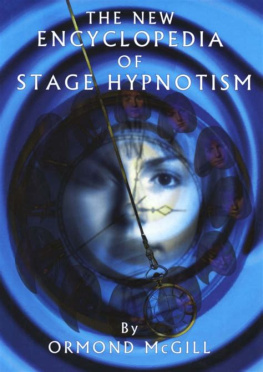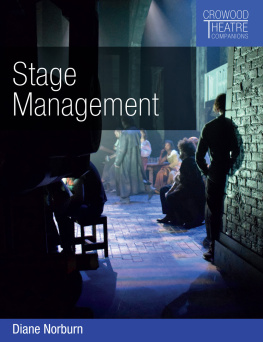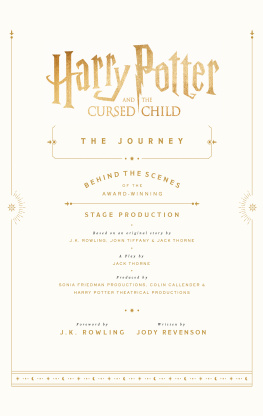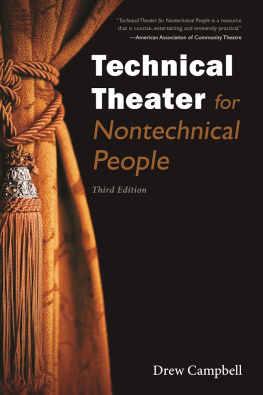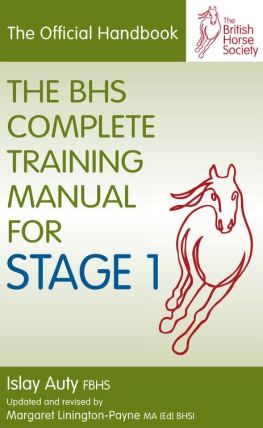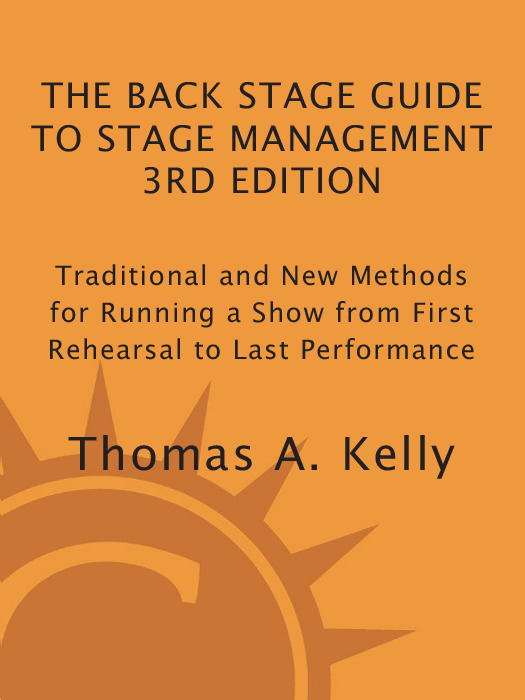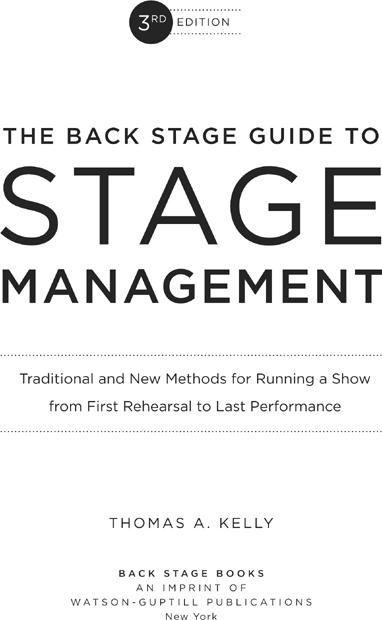Thomas A. Kelly - The Back Stage Guide to Stage Management: Traditional and New Methods for Running a Show from First Rehearsal to Last Performance
Here you can read online Thomas A. Kelly - The Back Stage Guide to Stage Management: Traditional and New Methods for Running a Show from First Rehearsal to Last Performance full text of the book (entire story) in english for free. Download pdf and epub, get meaning, cover and reviews about this ebook. year: 2010, publisher: Clarkson Potter/Ten Speed, genre: Home and family. Description of the work, (preface) as well as reviews are available. Best literature library LitArk.com created for fans of good reading and offers a wide selection of genres:
Romance novel
Science fiction
Adventure
Detective
Science
History
Home and family
Prose
Art
Politics
Computer
Non-fiction
Religion
Business
Children
Humor
Choose a favorite category and find really read worthwhile books. Enjoy immersion in the world of imagination, feel the emotions of the characters or learn something new for yourself, make an fascinating discovery.

- Book:The Back Stage Guide to Stage Management: Traditional and New Methods for Running a Show from First Rehearsal to Last Performance
- Author:
- Publisher:Clarkson Potter/Ten Speed
- Genre:
- Year:2010
- Rating:4 / 5
- Favourites:Add to favourites
- Your mark:
The Back Stage Guide to Stage Management: Traditional and New Methods for Running a Show from First Rehearsal to Last Performance: summary, description and annotation
We offer to read an annotation, description, summary or preface (depends on what the author of the book "The Back Stage Guide to Stage Management: Traditional and New Methods for Running a Show from First Rehearsal to Last Performance" wrote himself). If you haven't found the necessary information about the book — write in the comments, we will try to find it.
The next best thing to shadowing a Broadway stage manager, this detailed, behind-the-scenes book as been brought completely up to date. First published in 1991, it is widely used and has been lauded as the most comprehensive, educational book on stage management available. From preproduction planning and first rehersals to opening night and final strike, all the essentials of the profession are presented here in a friendly, engaging style.
Blending how-to information with anecdotes from his own career, author Thomas A. Kelly explains the entire theatrical process, including:
- Organizing all rehearsals and performances
- Maintaining the working script, cue sheets, and daily records
- Supervising the technical aspects of the show
- Running shows outdoors and at other non-theatrical venues
- Dealing with performers and crew members on all levels
This new edition reflects all the latest developments and innovations in the industry and adds a totally new chapter on opera stage management, complete with an in-depth breakdown of the challenges this style of production presents. The text is supported by sample documents, diagrams, and charts that straddle time-honored approaches with what can be generated by todays computer software. All the latest stage machinery is discussed, along with tips on finding employment. This guide remians the first choice for anyone who works in any branch of the profession, whether amateur, educational, or professional.
Thomas A. Kelly: author's other books
Who wrote The Back Stage Guide to Stage Management: Traditional and New Methods for Running a Show from First Rehearsal to Last Performance? Find out the surname, the name of the author of the book and a list of all author's works by series.

